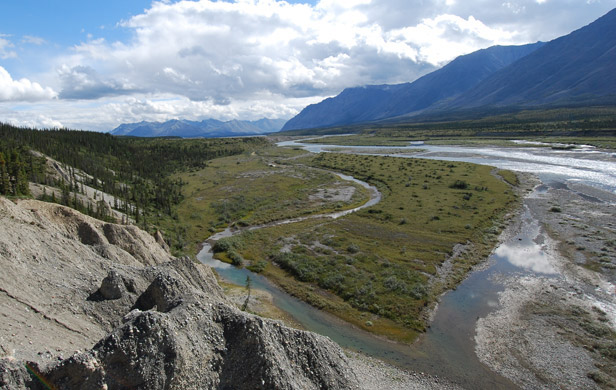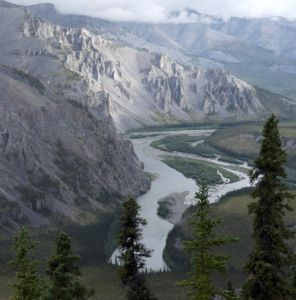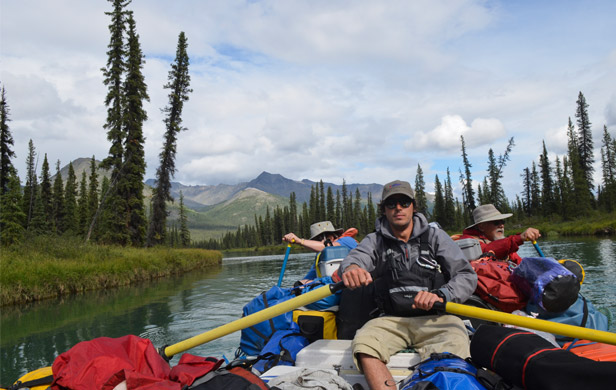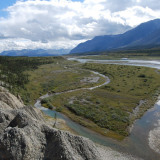
Two Yukon First Nations have won yet another landmark indigenous legal victory – this time against the local territorial government, over the vast Peel Watershed.

The case was brought by famed Canadian legal figure Thomas Berger on behalf of Na-Cho Nyak Dun and Tr’ondëk Hwëchin nations – both of whom share traditional territory in the largely pristine northern Yukon watershed. The plaintiffs also included several conservation groups and individuals.
The battle stems from a land use planning process for the Peel that spanned half a decade of research before devolving into years of political meddling. With various mining and resource players beginning to show interest in the largely untouched watershed, the Peel Commission was struck in the early 2000’s to gather information on the region and weigh out development and conservations objectives.
After delivering its final recommendations in 2009, the Yukon government began a several-year process of additional changes to the plan – ultimately rendering it unrecognizable from the original.
Invoking its perceived authority to modify the plan, the government slashed the total protected areas from 80% of the Peel down to just 29%.
Lack of consultation
It was on this basis that the two First Nations and their conservation allies launched a legal challenge last January in the Yukon Supreme Court (see video below) – claiming infringement of their constitutional rights to be consulted and accommodated. Essentially, under their Final Agreements with the Crown, Yukon First Nations have the right to be consulted on land use planning, among other matters. The government’s proposed modifications to the Commission’s final recommendations were too broad and didn’t receive enough consultation, the court found.
“The Final Agreements give Yukon First Nations certain rights in their Traditional Territories in exchange for the release of their claims to it. This includes a right to participate in the management of public resources,” a media advisory from the courts explains.
[quote]Chapter 11 encourages the development of a common land use planning process that applies to both Settlement and Non-Settlement Land in the Traditional Territories of the First Nations…The Government chose to propose modifications to the Recommended Plan in February 2011. Of the five modifications proposed, two simply stated a preference for more balance and increased options for access. This level of detail was insufficient for Consultation and lacked any tangible or practical guidance for the Planning Commission.[/quote]
Court sends government back to the drawing board

The court ruling forces the government to go back and redo much of its constitutionally-required consultation, but with with certain important restrictions. Specifically, the proposed, vague clauses it wanted to insert into the process – enabling it to make sweeping changes to the development-versus-conservation balance – are a no-go this time around.
“The appropriate remedy is to return the matter to the point in the process where the error occurred,” said the court’s media advisory today. “This was at the stage of Consultation with respect to the Final Recommended Plan.”
“In the result, the January 2014 Government approved Peel Watershed Regional Land Use Plan is quashed.”
[quote]The Government of Yukon is required to hold final Consultations with the affected First Nations and affected communities under s. 11.6.3.2 of the Final Agreements, based on the modifications it proposed in sufficient detail at the earlier stage in the process. Any modifications to the Final Recommended Plan shall be limited to these proposed modifications…but not the stated preference for more balance and increased options for access.[/quote]
Public onside with protecting Peel

The court ruling reinforces a strong public will to protect the Peel, says Christina Macdonald of the Yukon Conservation Society – one of the co-plaintiffs in the case, along with the Canadian Parks and Wilderness Society.
“I feel like if I opened my window this morning at 9 AM when the decision was announced, I would have heard all of the Yukon cheering – along with our many supporters across Canada and around the world,” said Macdonald over the phone from her office in Whitehorse.
But the Yukon Government has made no bones about its preference to develop the region. “This remote area holds resources that have the potential to be of great value to Yukon’s economy, both now and in the future,” Yukon Minister of Energy, Mines and Resources Scott Kent said in a statement when the government’s version of the plan was released.
“We’re anticipating the government will appeal,” Macdonald responds, “but the people have spoken and now the courts have spoken, so why appeal? We won here and we’ll win again.”

